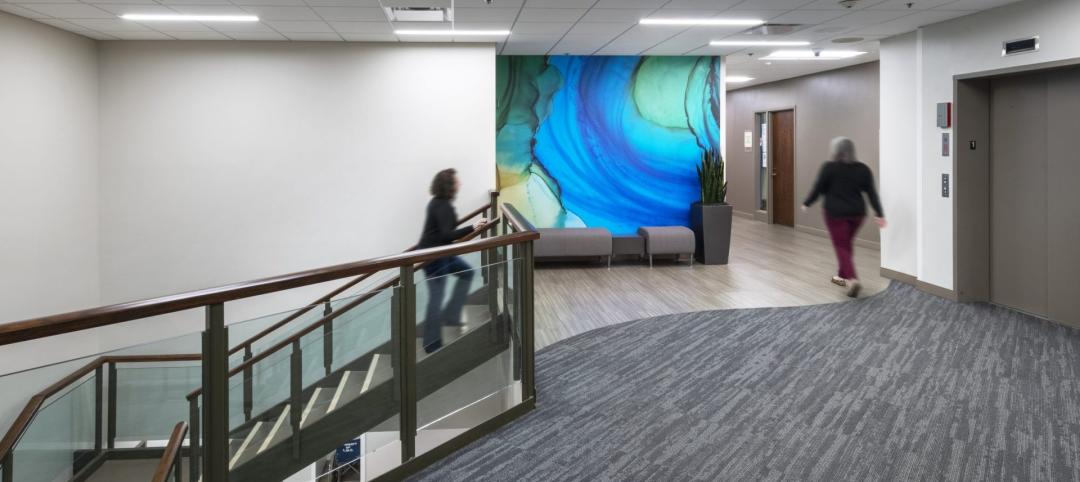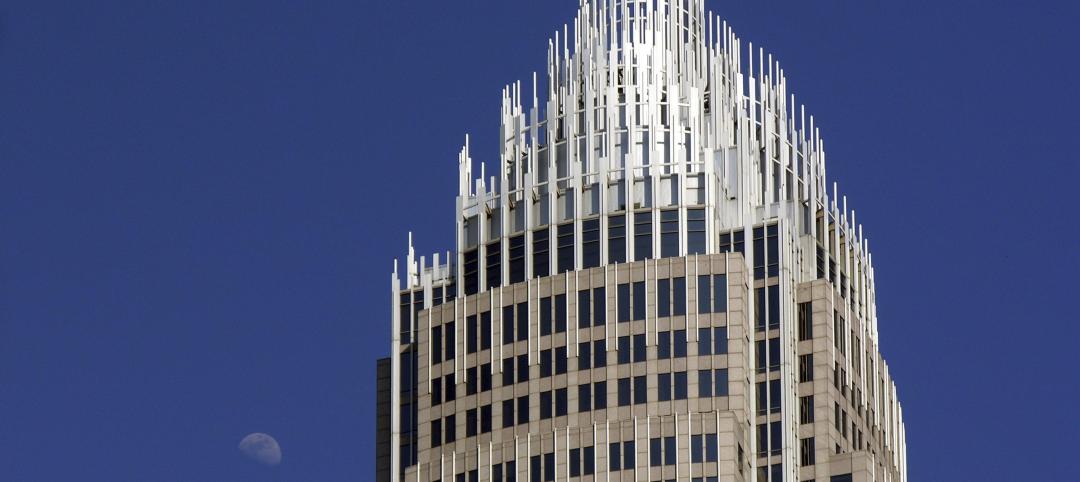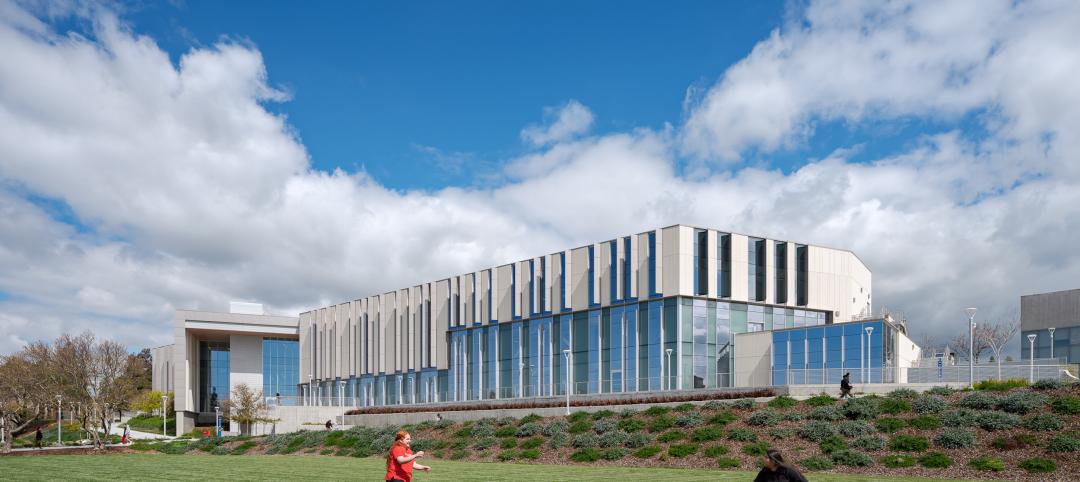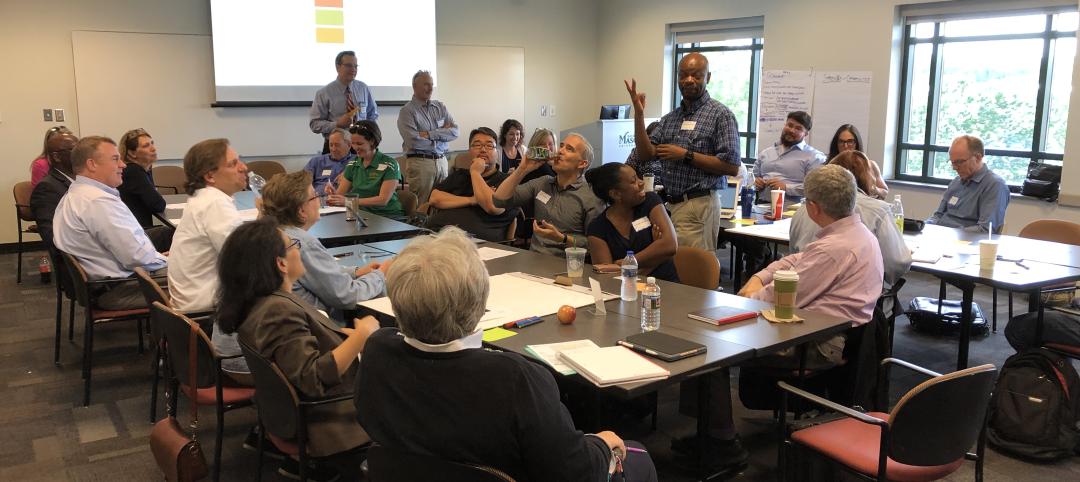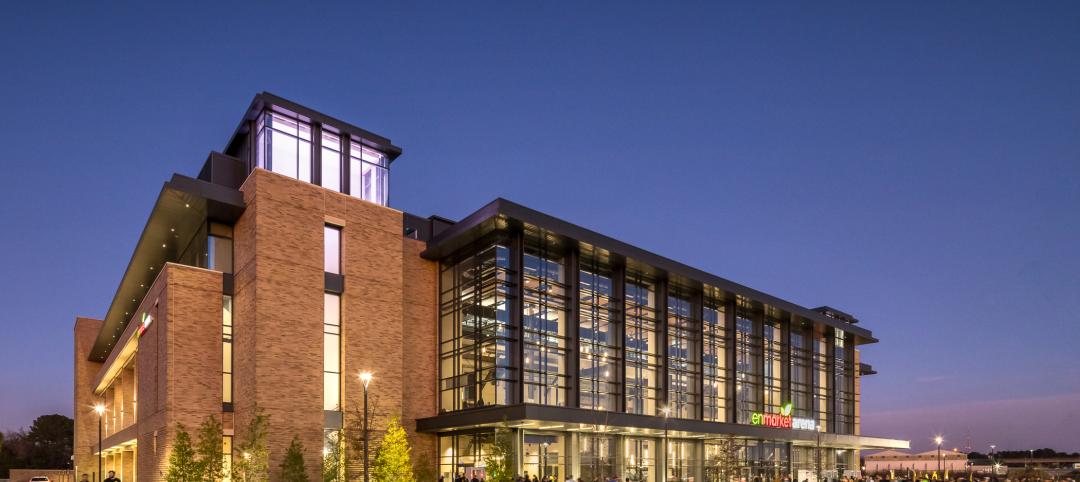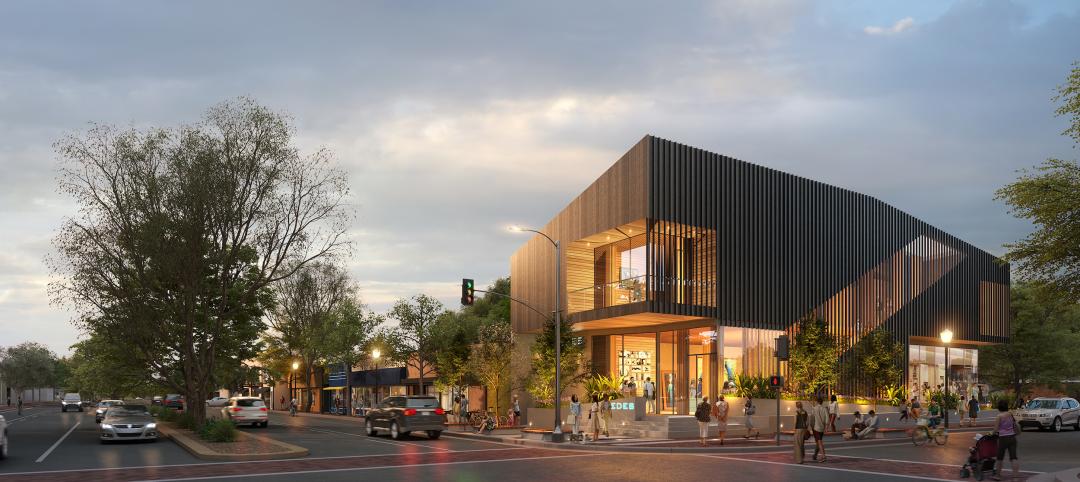Concern for Independent Living, a New York-based non-profit group providing supportive housing was in need of a new housing facility in Brooklyn, N.Y., for low-income individuals recovering from mental illness. Using modular construction allowed the project to be completed in record time, quickly transforming the property into a residence with 65 studio apartments.
The development of this program included the demolition of the existing building and the new construction of the MacDougal Street Apartments. The new building is the first Single-Site Supportive Housing Program in New York State to utilize modular building techniques and provides a model for modular construction in supportive housing.
The MacDougal Street Apartment complex is located on the site of a former residential program for adolescents, which closed in 2005. The buildings on the property remained vacant and boarded up, becoming a neighborhood eyesore until the property was purchased by Concern for Independent Living in 2008. The vacant structures were demolished to make room for the newly constructed six-story building.
Eighty-four modules were constructed off-site at Capsys Corp.'s manufacturing plant at the Brooklyn Navy Yard. The factory-controlled process moved the construction off site to bring the order and control of an assembly line, minimizing construction waste and site disturbances. Starting with the fabrication of the structural elements, components were added to the modules as they moved through the factory. Windows, doors, MEP systems and fixtures, and trims were all installed along the line. The modules were then wrapped in protective materials and moved to temporary storage awaiting their trip to the building site to become part of the building project.
Project Summary
Number of modules: 84
Number of stories: 6
Installation time: 12 days
Square footage: 29,850
While the site was being prepared and the foundations constructed, Capsys was simultaneously fabricating the modules. When the site was ready, so were the modules. A large hydraulic construction crane was staged at the site, modules were transported in a systematic order to the crane hook and modules were quickly stacked and welded creating a unitized structural whole assembly. The erection process happened so quickly that all six stories were installed in just 12 days.
The project was funded by NYS Office of Mental Health and designed by DeLaCour and Ferrara Architects. This apartment building provides safe, affordable housing and on-site supportive services, incorporating many of the latest advances in construction techniques and sustainable features such as Energy Recovery Ventilation, Photovoltaic technology for power generation and substantial reductions in energy use.
Residents enjoy their own studio apartment with private bathroom and kitchenette. The building includes a fitness center, computer room/library, laundry facilities, several lounges, and outdoor recreational areas.
When Concern for Independent Living purchased the site, they promised to improve the neighborhood by developing an attractive building that is an asset to the community; increasing employment opportunities; encouraging the stability, self-sufficiency and productivity of adults living with mental illness; and increasing affordable housing opportunities for disabled men and women. This project has succeeded in achieving all of these goals.
"We are proud to have companies like Capsys Corp. as members of the Modular Building Institute," said Tom Hardiman, executive director. "With their help, we are changing the way the world builds."
About MBI
 The Modular Building Institute (MBI) is the international non-profit trade association serving the modular construction industry. Members are suppliers, manufacturers and contractors engaged in all aspects of modular projects from complex multi-story solutions to temporary accommodations.
The Modular Building Institute (MBI) is the international non-profit trade association serving the modular construction industry. Members are suppliers, manufacturers and contractors engaged in all aspects of modular projects from complex multi-story solutions to temporary accommodations.
As the Voice of Commercial Modular Construction (TM), it is MBI's mission to expand the use of offsite construction through innovative construction practices, outreach and education to the construction community and customers, and recognition of high quality modular designs and facilities. To learn more about modular construction, go to www.modular.org. +
Related Stories
Multifamily Housing | Jun 15, 2023
Alliance of Pittsburgh building owners slashes carbon emissions by 45%
The Pittsburgh 2030 District, an alliance of property owners in the Pittsburgh area, says that it has reduced carbon emissions by 44.8% below baseline. Begun in 2012 under the guidance of the Green Building Alliance (GBA), the Pittsburgh 2030 District encompasses more than 86 million sf of space within 556 buildings.
Industry Research | Jun 15, 2023
Exurbs and emerging suburbs having fastest population growth, says Cushman & Wakefield
Recently released county and metro-level population growth data by the U.S. Census Bureau shows that the fastest growing areas are found in exurbs and emerging suburbs.
Healthcare Facilities | Jun 14, 2023
Design considerations for behavioral health patients
The surrounding environment plays a huge role in the mental state of the occupants of a space, especially behavioral health patients whose perception of safety can be heightened. When patients do not feel comfortable in a space, the relationships between patients and therapists are negatively affected.
Engineers | Jun 14, 2023
The high cost of low maintenance
Walter P Moore’s Javier Balma, PhD, PE, SE, and Webb Wright, PE, identify the primary causes of engineering failures, define proactive versus reactive maintenance, recognize the reasons for deferred maintenance, and identify the financial and safety risks related to deferred maintenance.
University Buildings | Jun 14, 2023
Calif. State University’s new ‘library-plus’ building bridges upper and lower campuses
A three-story “library-plus” building at California State University, East Bay (CSUEB) that ties together the upper and lower campuses was recently completed. The 100,977-sf facility, known as the Collaborative Opportunities for Research & Engagement (“CORE”) Building, is one of the busiest libraries in the CSU system. The previous library served 1.2 million visitors annually.
Higher Education | Jun 14, 2023
Designing higher education facilities without knowing the end users
A team of architects with Page offers five important factors to consider when designing spaces for multiple—and potentially changing—stakeholders.
Resiliency | Jun 14, 2023
HUD offers $4.8 billion in funding for green and resilient building retrofit projects
The Department of Housing and Urban Development (HUD) recently released guidelines for its Green and Resilient Retrofit Program (GRRP) that has $4.8 billion for funding green projects.
Arenas | Jun 14, 2023
A multipurpose arena helps revitalize a historic African American community in Georgia
In Savannah, Ga., Enmarket Arena, a multipurpose arena that opened last year, has helped revitalize the city’s historic Canal District—home to a largely African American community that has been historically separated from the rest of downtown.
Building Materials | Jun 14, 2023
Construction input prices fall 0.6% in May 2023
Construction input prices fell 0.6% in May compared to the previous month, according to an Associated Builders and Contractors analysis of the U.S. Bureau of Labor Statistics’ Producer Price Index data released today. Nonresidential construction input prices declined 0.5% for the month.
Mass Timber | Jun 13, 2023
Mass timber construction featured in two-story mixed-use art gallery and wine bar in Silicon Valley
The Edes Building, a two-story art gallery and wine bar in the Silicon Valley community of Morgan Hill, will prominently feature mass timber. Cross-laminated timber (CLT) and glulam posts and beams were specified for aesthetics, biophilic properties, and a reduced carbon footprint compared to concrete and steel alternatives.





